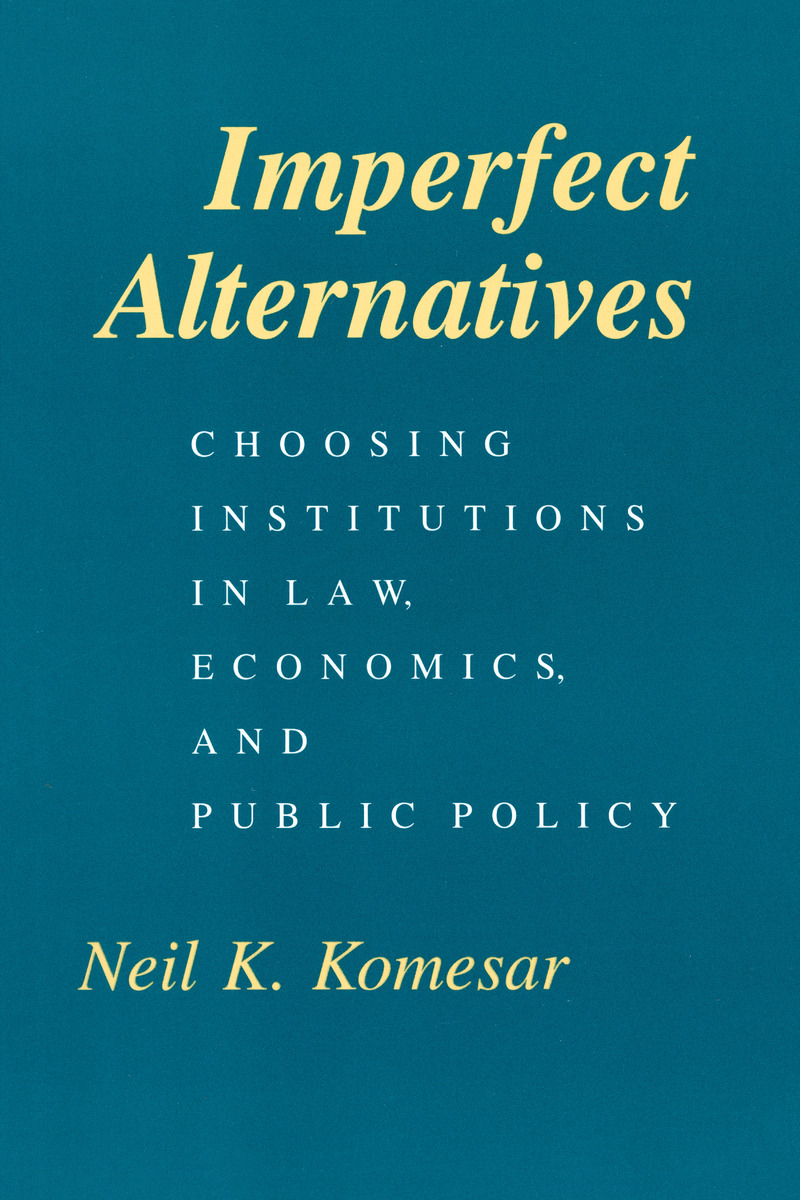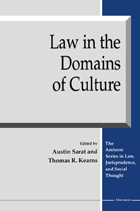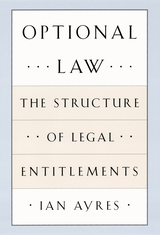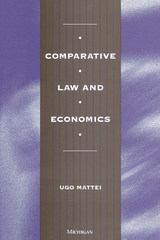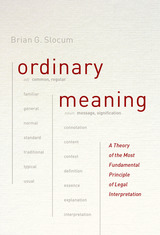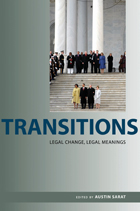Imperfect Alternatives: Choosing Institutions in Law, Economics, and Public Policy
University of Chicago Press, 1994
Cloth: 978-0-226-45088-9 | Paper: 978-0-226-45089-6
Library of Congress Classification K487.E3K66 1994
Dewey Decimal Classification 342.041
Cloth: 978-0-226-45088-9 | Paper: 978-0-226-45089-6
Library of Congress Classification K487.E3K66 1994
Dewey Decimal Classification 342.041
ABOUT THIS BOOK | TOC | REQUEST ACCESSIBLE FILE
ABOUT THIS BOOK
Major approaches to law and public policy, ranging from law and economics to the fundamental rights approach to constitutional law, are based on the belief that the identification of the correct social goals or values is the key to describing or prescribing law and public policy outcomes. In this book, Neil Komesar argues that this emphasis on goal choice ignores an essential element—institutional choice. Indeed, as important as determining our social goals is deciding which institution is best equipped to implement them—the market, the political process, or the adjucative process.
Pointing out that all three institutions are massive, complex, and imperfect, Komesar develops a strategy for comparative institutional analysis that assesses variations in institutional ability. He then powerfully demonstrates the value of this analytical framework by using it to examine important contemporary issues ranging from tort reform to constitution-making.
Pointing out that all three institutions are massive, complex, and imperfect, Komesar develops a strategy for comparative institutional analysis that assesses variations in institutional ability. He then powerfully demonstrates the value of this analytical framework by using it to examine important contemporary issues ranging from tort reform to constitution-making.
See other books on: Constitutional | Judicial process | Law and economics | Public | Public policy (Law)
See other titles from University of Chicago Press
